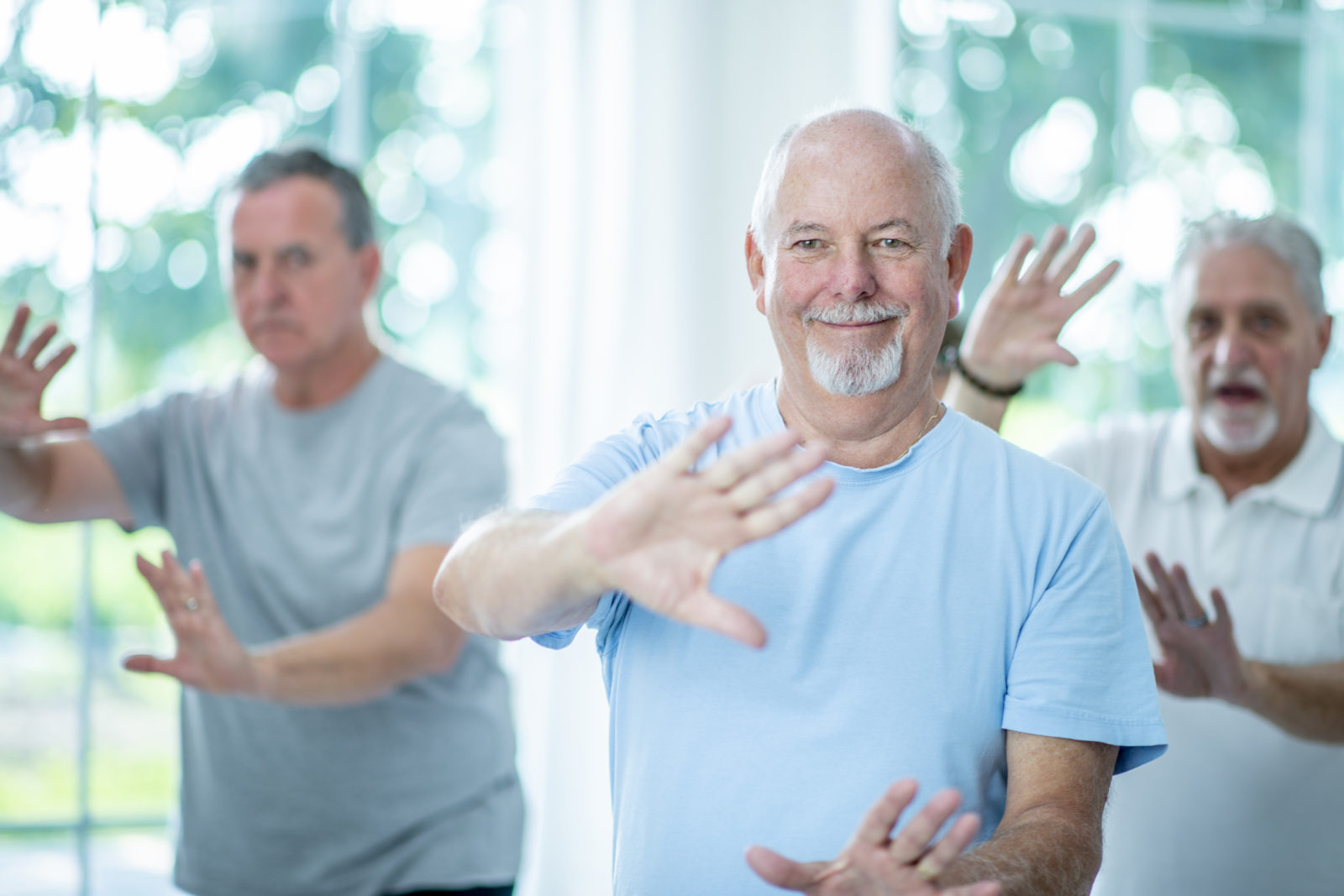Tai Chi Is an Outstanding Exercise for Older Adults

May is National Physical Fitness and Sports Month. For many older adults, physical activity can be a challenge, due to a chronic medical condition or recent surgery. But one form of exercise that can get older Americans moving safely is the traditional Chinese martial art of tai chi. Tai chi uses slow movements which, when practiced over time, can improve balance, agility, coordination, strength and stamina, while lowering blood pressure and stress. Studies have also demonstrated tai chi’s ability to help those living with chronic conditions such as Parkinson’s disease, arthritis and fibromyalgia.
What makes tai chi such a great exercise for older adults is that it is a low-impact exercise that is easy on the joints, can be performed almost anywhere and requires no expensive equipment. It can be adapted for those recovering from surgery, people in wheelchairs, or those living with a chronic condition, such as arthritis or heart disease.
Here are just some of the ways tai chi can help improve your health and well-being.
It makes you more physically fit
An article published in the British Journal of Sports Medicine showed that tai chi helped those living with osteoarthritis, COPD and heart failure show improvement in four areas: a six-minute walking test, muscle strength, the time it takes to get up and move, and quality of life. The best part? These results were accomplished without any pain while performing the exercises.
It reduces pain
A study published in the New England Journal of Medicine found that people living with fibromyalgia who participated in tai chi classes twice a week for 12 weeks reported less pain than the control group, who participated in stretching sessions and wellness education twice a week.
It reduces stress
In addition to being a physical exercise, tai chi is also a meditative practice, which helps calm the mind, a leading factor in reducing stress. It is often called “meditation in motion.” It has even helped veterans better manage post-traumatic stress disorder (PTSD) symptoms.
It aids in rehabilitation
Because of its gentle nature, tai chi is an excellent choice for those recovering from a medical event such as a heart attack or stroke, or from surgery. Many people recuperating from such an event don’t engage in proactive rehabilitation because it’s painful or seems overly onerous. A study conducted at The Miriam Hospital in Providence, Rhode Island on heart patients found that tai chi was safe and well-liked by participants, meaning they actually participated, helping to speed recovery.
It decreases fall risk
In a study published by the Journal of Gerontology, older adults who practiced six months of tai chi decreased their frequency of falls by 55 percent compared to a group who simply performed stretching exercises.
It eases depression
Researchers from the UCLA Department of Psychiatry and Biobehavioral Sciences confirmed that tai chi can be effective in fighting depression in older adults. For some seniors, tai chi might even offer benefits to rival prescription antidepressant drugs, which can cause negative side effects or undesirable interactions with the other medicines a senior takes.
It can increase your quality of life
A research project from Beth Israel Deaconess Medical Center in Boston found that tai chi not only improves the mood of patients who are living with chronic heart failure, but also encourages them to be more active. Confirming the results of the UCLA researchers, the Beth Israel Deaconess team discovered that patients who participated in tai chi experienced an improvement in mood and quality of life. They also discovered that the patients were more motivated and confident during their prescribed walking regimen.
You can practice tai chi at home with a DVD or join one of the many classes available throughout the country. Of course, it’s always a good idea to talk to your doctor before beginning any exercise regimen.
![Family Home Health [logo]](https://www.familyhomehealthnetwork.com/wp-content/uploads/sites/250/2017/04/logo-new.png)